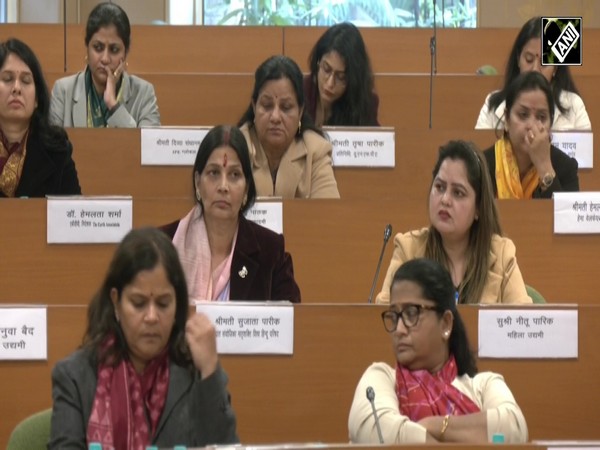Study finds gender stereotypes in computer science, engineering begin by age six
Jan 10, 2022

Houston [US], January 10 : A new study has found that the perception that boys are more interested than girls in computer science and engineering starts as young as age six.
The research has been published in the 'Proceedings of the National Academy of Sciences Journal'.
That may be one reason why girls and women are underrepresented in these STEM career fields, reported study co-author Allison Master, assistant professor at the University Of Houston College Of Education.
"Gender-interest stereotypes that say 'STEM is for boys' begin in grade school, and by the time they reach high school, many girls have made their decision not to pursue degrees in computer science and engineering because they feel they don't belong," said Master.
Researchers at UH and the University of Washington surveyed nearly 2,500 students in first through 12th grade from diverse racial and socioeconomic backgrounds. The results of those studies were combined with laboratory experiments to provide important insights into how stereotypes impacted children's motivation.
More children believed girls had less interest than boys in key STEM fields. Specifically, 63 per cent of the students believed girls were less interested in engineering than boys were, while 9 per cent believed girls were more interested in the subject. Regarding computer science, 51 per cent thought girls had less interest while 14 per cent thought girls had more interest than boys.
These interest patterns played out in the job market. According to United States Census Bureau statistics, while women made up nearly half of the workforce, they accounted for only 25 per cent of computer scientists and 15 per cent of engineers.
Researchers said educators, parents, and policymakers can help close these gender gaps by introducing girls to high-quality computer science and engineering activities in elementary school before stereotype endorsements take root. They also suggested educators who wish to promote girls' interest and engagement in STEM should consider using inclusive programs designed to encourage girls' sense of belonging in STEM.
The laboratory experiments gave children a choice between computer science activities. Fewer girls (only 35 per cent) chose a computer science activity they believed boys were more interested in, compared to the 65 per cent of girls who chose an activity for which they believed boys and girls were equally interested.
"It's time for all stakeholders to be united in sending the message that girls can enjoy STEM just as much as boys do, which will help draw them into STEM activities," added Master, who directs UH's Identity and Academic Motivation (I AM) Lab.
Co-authors on the study are Andrew N. Meltzoff of the University of Washington, Seattle's Institute for Learning & Brain Sciences; and Sapna Cheryan, University of Washington, Seattle's Department of Psychology.




















